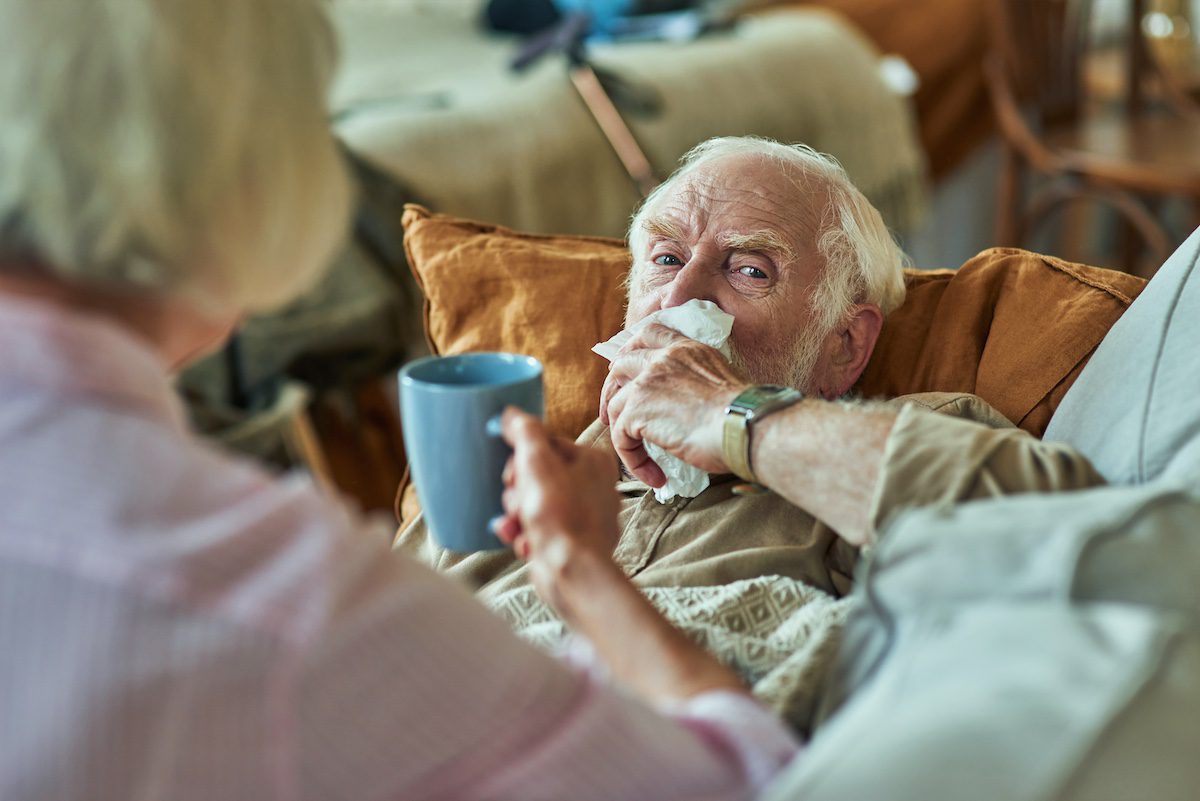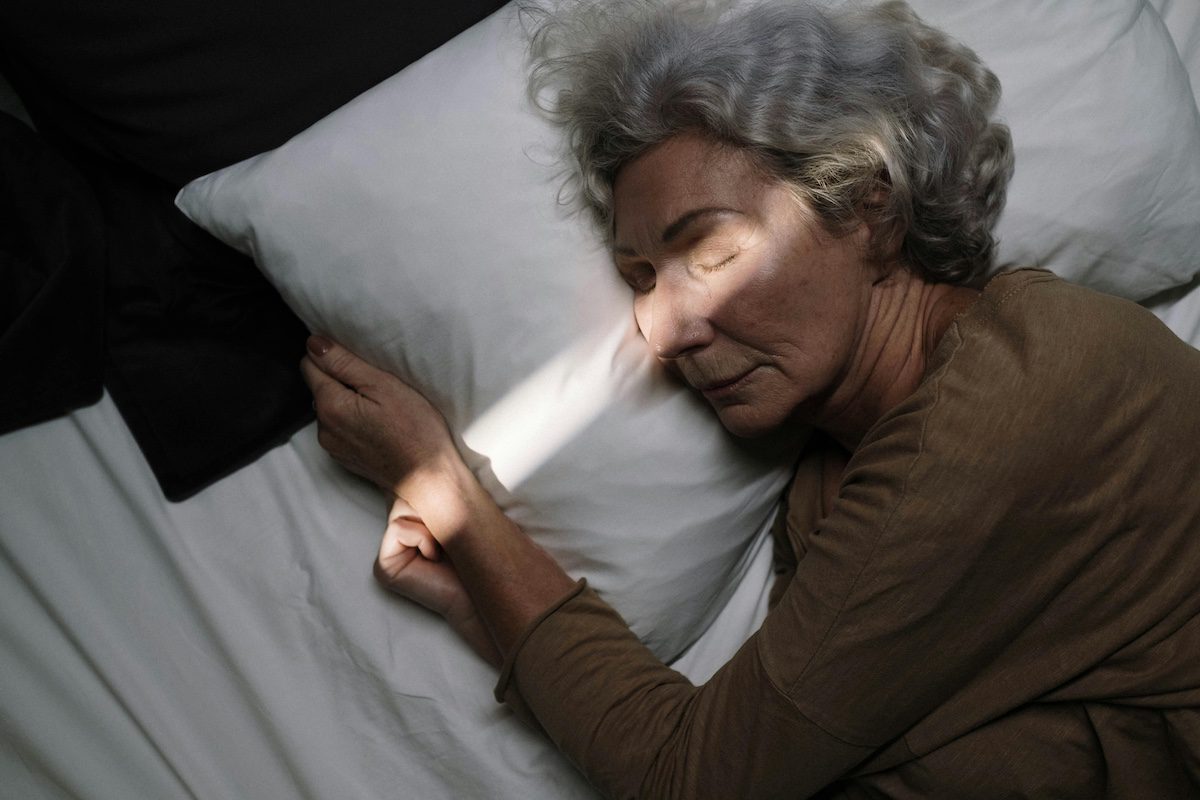Flu season can pose significant health risks for elderly individuals, particularly those receiving hospice care. With compromised immune systems and existing health challenges, they are more vulnerable to severe complications from the flu.
As caregivers and family members, ensuring their safety requires a proactive and comprehensive approach. This blog post offers practical strategies to protect your elderly loved ones during flu season while maintaining their comfort and quality of life in hospice care.
Why the Flu Is More Dangerous for Seniors in Hospice Care
Elderly individuals are naturally at a higher risk for complications from the flu due to weakened immune systems that come with aging. The immune response in older adults is not as robust as it is in younger individuals, making it harder for their bodies to fight off infections.
This weakened defense mechanism is further compounded by age-related health conditions and the physical toll of managing multiple chronic illnesses.
When in hospice care, seniors often face additional health challenges that increase their vulnerability to severe flu infections.
Chronic illnesses like heart disease, COPD (chronic obstructive pulmonary disease), kidney disease, and diabetes are common among hospice patients and can become more difficult to manage when the flu strikes.
Reduced mobility and the physical strain of illness may also limit their ability to perform basic self-care tasks, making them reliant on caregivers for routine activities like staying hydrated or managing symptoms.
Complications from the flu can include:
- Pneumonia: A leading cause of hospitalization and death in seniors.
- Dehydration: Flu symptoms can rapidly lead to dehydration, especially in those with difficulty eating or drinking.
- Exacerbation of Chronic Illnesses: Conditions like heart failure or diabetes can worsen during illness.
Understanding these risks highlights the importance of taking preventive measures to keep elderly loved ones safe during flu season.
Practice Good Hygiene
Maintaining excellent hygiene is critical to preventing the spread of flu viruses. Simple but consistent habits can significantly reduce exposure.
Hygiene Tips for Caregivers and Visitors:
- Wash hands thoroughly with soap and water for at least 20 seconds before and after interacting with the patient.
- Use alcohol-based hand sanitizers if soap and water are unavailable.
- Avoid touching your face, especially your eyes, nose, and mouth, to prevent transmitting germs.
Hygiene Measures in the Patient’s Environment:
- Regularly disinfect commonly touched surfaces, such as door handles, light switches, and medical equipment.
- Provide tissues and encourage proper disposal after sneezing or coughing.
- Keep a hand sanitizer or disinfectant wipes nearby for easy access.
Limit Exposure to Sick Individuals
Visitors are essential to maintaining the emotional well-being of hospice patients, but during flu season, it’s crucial to balance social interaction with safety.
Strategies to Minimize Exposure:
- Politely ask visitors who are feeling unwell to delay their visit until they recover.
- Screen visitors for flu-like symptoms, such as fever, coughing, or fatigue.
- Use virtual communication options like video calls to stay connected without risking exposure.
Hospice staff can also assist in setting boundaries and implementing policies to protect your loved one from unnecessary exposure.
Ensure Proper Nutrition and Hydration
A well-balanced diet and adequate hydration help strengthen the immune system, making the body more resilient against infections like the flu. In hospice care, dietary needs and restrictions vary, so it’s essential to consult the care team for guidance.
Tips for Supporting Nutrition and Hydration:
- Offer nutrient-rich, easy-to-digest foods like soups, fruits, and whole grains.
- Encourage small, frequent meals if your loved one has a reduced appetite.
- Provide plenty of fluids, including water, herbal teas, and broths, to prevent dehydration.
If your loved one struggles to eat or drink, the hospice team can suggest alternative ways to maintain hydration and nutrition, such as through supplements or modified diets.
Manage Stress and Fatigue
Stress and fatigue can weaken the immune system, making your loved one more vulnerable to illnesses. Hospice care focuses on providing comfort, so it’s vital to ensure their mental and emotional well-being during flu season.
Ways to Reduce Stress for Hospice Patients:
- Maintain a calm, peaceful environment.
- Engage them in comforting activities, such as listening to music, reading, or gentle conversation.
- Encourage regular rest.
For caregivers, managing your own stress is equally important to avoid burnout and protect your immune health. Consider respite care services or lean on hospice professionals for additional support.
Monitor Symptoms Closely
Early detection of flu symptoms is critical in preventing complications. Familiarize yourself with the warning signs and seek medical advice promptly if symptoms arise.
Common Flu Symptoms to Watch For:
- Fever or chills
- Persistent cough
- Body aches and fatigue
- Nasal congestion or sore throat
In hospice care, any sign of infection should be taken seriously. The care team can provide guidance on symptom management and determine if further medical intervention is necessary.
Leverage Hospice Resources
Hospice care is designed to provide comprehensive support for patients and their families, especially during challenging times like flu season. Make use of the resources and expertise available to you.
How Hospice Teams Can Help:
- Preventive Care: Offering vaccinations and advice on minimizing risks.
- Symptom Management: Providing medications and treatments to alleviate flu symptoms if they occur.
- Education: Offering guidance on hygiene practices, nutrition, and flu prevention.
Hospice staff are trained to handle the unique needs of elderly patients, ensuring their comfort and safety during flu season.
Plan for Emergencies
Despite your best efforts, flu-related complications may still arise. Having a plan in place can help you respond quickly and effectively.
Emergency Preparedness Tips:
- Keep contact information for the hospice team and primary care physician readily available.
- Know the nearest medical facility equipped to handle elderly patients.
- Maintain a supply of essential items, such as medications, thermometers, and over-the-counter remedies for fever or congestion.
Discussing contingency plans with the hospice team can provide peace of mind and ensure everyone is prepared.
Final Thoughts
Flu season can be challenging for families with elderly loved ones in hospice care. However, with proactive measures, it’s possible to significantly reduce the risk of infection and ensure your loved one remains comfortable and safe.
From practicing good hygiene to leveraging hospice resources and planning for emergencies, every step you take contributes to their well-being.
By prioritizing preventive care and open communication with the hospice team, you can protect your loved one while preserving the quality of their final months.
Together, you can face the flu season with confidence and compassion, creating a supportive environment that honors their needs and dignity.



